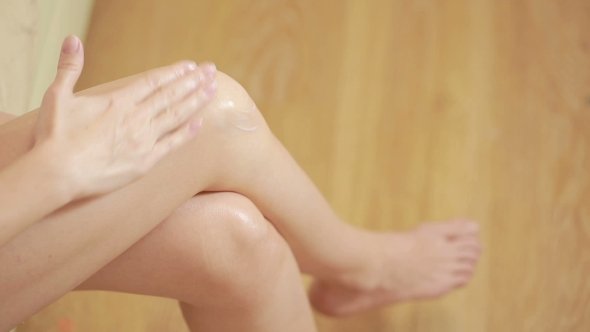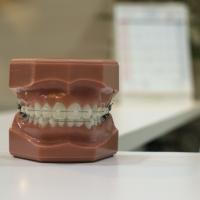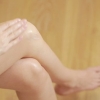Home > Blog > Skin and Body
Does Bio-Oil Help with Varicose Veins?

Varicose veins are a common condition that can cause discomfort and cosmetic concerns. Many people seek various treatments and remedies to alleviate the symptoms and improve the appearance of their skin. One such remedy that has gained attention is Bio-Oil. But does Bio-Oil really help with varicose veins? In this article, we'll explore the properties of Bio-Oil, its effectiveness, and how it can be used in the context of varicose veins.
What is Bio-Oil?
Bio-Oil is a mixture of different oils, including rosemary, chamomile, lavender, calendula, and vitamin E and A oils. It's known for its light, non-greasy feeling on the skin and is often used to improve skin appearance and texture.
Ingredients and Properties
The combination of oils in Bio-Oil provides a unique blend that has been noted for its potential benefits on the skin. Here's a closer look at some of its key ingredients:
- Rosemary and Chamomile: Known for their soothing properties.
- Lavender and Calendula: Often used for their healing effects.
- Vitamin E and A Oils: These vitamins are thought to promote skin health and reduce scarring.
Does Bio-Oil Help with Varicose Veins?
According to Eddie Chaloner, a vascular surgeon that provides treatment for varicose veins in the UK, Varicose veins are a complex condition that can cause both cosmetic and physical discomfort. While there are various treatments available, the use of oils, such as Bio-Oil, has become a popular home remedy. Let's delve deeper into the potential benefits and considerations of using Bio-Oil for varicose veins. There has been some evidence that vitamin E provides the skin with protection from sunlight.
Bio-Oil for Post-Surgery Recovery
After surgery to correct varicose veins, skin care is an essential part of recovery. Bio-Oil, with its blend of natural oils and vitamins, can help the skin recuperate. Its non-greasy texture and soothing properties may aid in reducing scarring and improving skin appearance.
Scientific Evidence
While Bio-Oil has shown promising results in improving scars and stretch marks, its direct impact on varicose veins is still under investigation. The anecdotal evidence suggests potential benefits, but more rigorous studies are needed to confirm its effectiveness specifically for varicose veins.
Potential Mechanisms
Bio-Oil's ingredients, such as vitamin E and A oils, rosemary, chamomile, lavender, and calendula, are known for their skin-healing properties. These ingredients may work synergistically to:
- Improve Skin Elasticity: By nourishing the skin, Bio-Oil may enhance elasticity, which could indirectly support the health of veins.
- Reduce Scarring: Varicose vein surgeries often leave scars, and Bio-Oil's scar-reducing properties may be beneficial in post-surgery recovery.
- Soothe Inflammation: Some of the ingredients in Bio-Oil have anti-inflammatory effects, which might help alleviate discomfort associated with varicose veins.
Considerations and Precautions
While Bio-Oil may offer some benefits, it's essential to approach its use with caution:
- Consult a Healthcare Provider: Varicose veins are a medical condition, and any home remedies should be discussed with a healthcare provider to ensure safety and compatibility with other treatments.
- Avoid Overuse: Some post-surgery guidelines specifically advise against the use of "healing creams" like Bio-Oil, as they may interfere with the body's natural inflammatory response needed for healing.
- Individual Response: As with any skincare product, individual responses to Bio-Oil may vary. Testing on a small patch of skin and following the manufacturer's instructions is advisable.
How to Use Bio-Oil for Varicose Veins
Using Bio-Oil for varicose veins requires careful consideration and proper application. Here's a step-by-step guide to help you make the most of this product for your varicose vein concerns.
1. Consult Your Doctor
Before incorporating Bio-Oil into your routine, especially if you're recovering from surgery or managing a medical condition, consult with your healthcare provider. They can assess your specific situation and advise whether Bio-Oil is suitable for you.
2. Perform a Patch Test
Since skin sensitivity varies, it's wise to perform a patch test before applying Bio-Oil to larger areas. Apply a small amount to a discreet area of your skin and wait 24 hours to check for any adverse reactions.
3. Cleanse the Area
Before applying Bio-Oil, make sure the affected area is clean and dry. Gently cleanse with a mild soap and pat dry with a soft towel.
4. Apply Gently
Bio-Oil should be massaged gently into the affected areas using circular motions. This helps in better absorption and stimulates blood flow to the area.
5. Follow a Routine
Consistency is key when you use bio-oil for varicose veins. Establish a daily routine, applying the oil at the same time each day, preferably after a shower when the skin is more receptive.
6. Monitor Progress
Keep track of any changes in the appearance or feel of your varicose veins. Note improvements or any unexpected reactions, and share this information with your healthcare provider if needed.
7. Combine with Other Care Practices
Bio-Oil can be part of a broader care routine for varicose veins. Consider combining it with other practices such as wearing compression stockings, engaging in regular exercise like walking, and avoiding prolonged standing.
8. Follow the Instructions
Always follow the manufacturer's instructions or the guidance provided by your healthcare provider. Bio-Oil's effectiveness may vary based on how it's used, so adhering to the recommended usage ensures optimal results.
9. Avoid Certain Activities
Some guidelines specifically advise against the use of healing creams like Bio-Oil following certain treatments. Be mindful of any specific instructions related to your varicose vein treatment and adhere to them.
Bio-Oil Alternatives
Ibuleve Gel
Ibuleve gel is something that can be very helpful for reducing pain and swelling after your varicose vein surgery. However, it contains ibuprofen, so it needs to be used cautiously if you have already been prescribed voltaren (diclofenac). Ibuleve gel has been shown to be as effective as a 400mg tablet of ibuprofen.
This gel is applied directly to any swelling or painful areas and is massaged into the skin gently. It can be purchased at most chemists.
Arnica
Finally, consider using a topical application of arnica. This is another product that can be found at health stores and chemists, and is an inexpensive way to reduce bruising, pain, and swelling at the surgical site.
While many people agree that arnica has helped them to recover after an injury, scientific evidence is rather patchy. A study concluded that topical arnica at 20% strength can reduce bruising “more effectively than placebo and more effectively than low-concentration vitamin K formulations”.
Conclusion
Many people have questions such as "is grape seed oil good for varicose veins?". According to experts who write for us on beauty and skin care, Bio-Oil offers a unique blend of natural oils and vitamins that may provide benefits for those dealing with varicose veins. However, its use should be approached with care and in consultation with healthcare professionals. By following the above steps, you can explore the potential of Bio-Oil as part of your varicose vein care routine, always prioritizing safety and individual needs.
More to Read:
Previous Posts:






